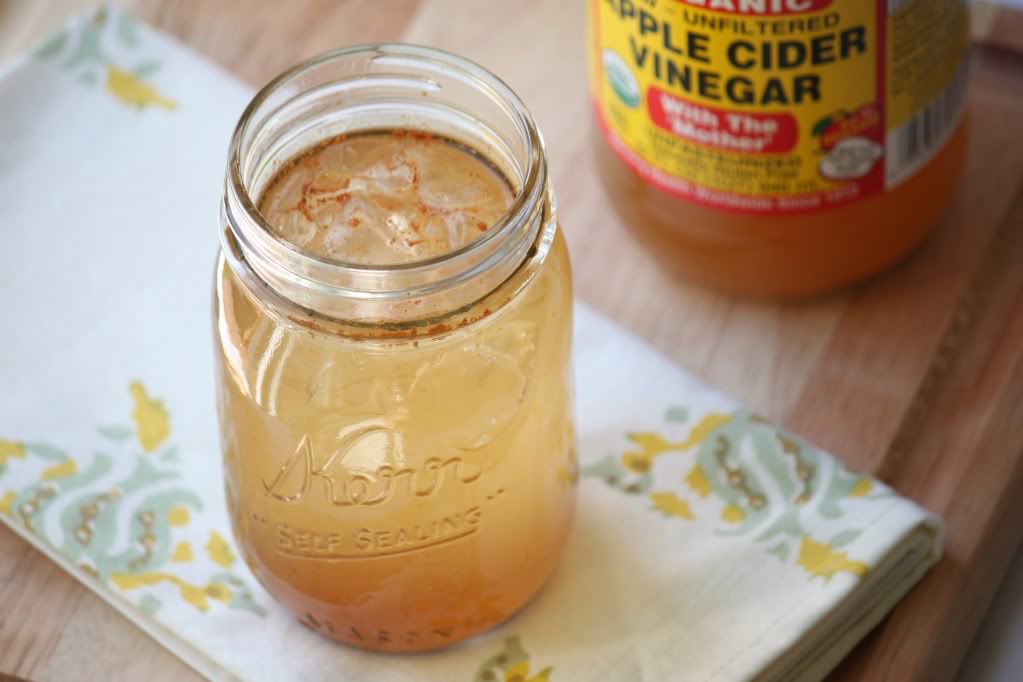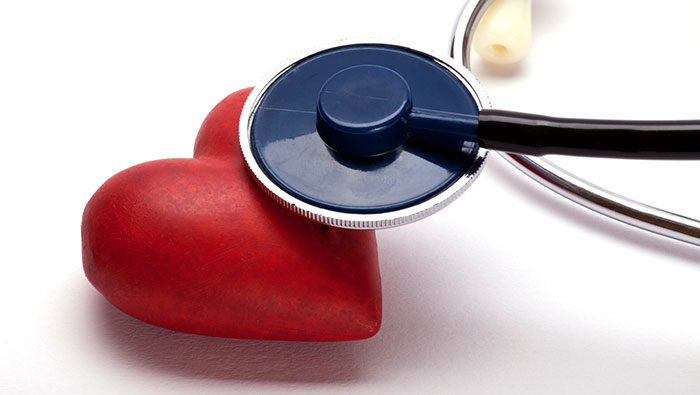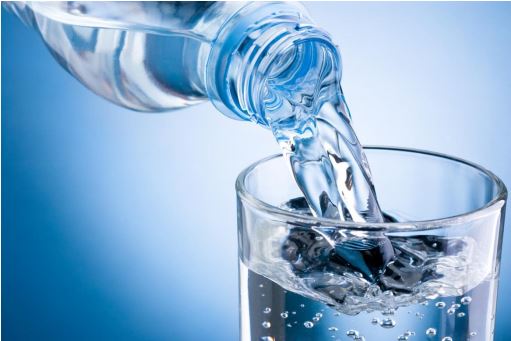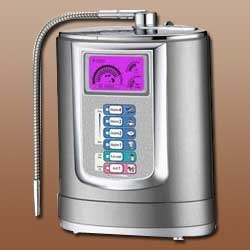
Top Remedies for Sore Throat
Posted by Editor on Mar 30th, 2017 in Secure in Health | 0 comments
Perhaps the most inconvenient pain is sore throat. It keeps you from enjoying good food because swallowing is very difficult and excruciating. It hurts but it is nobody’s business. The least that you can do is to look for remedies on your own. Sore throat happens when the cells found in your mucous membranes become inflamed or swollen.

Here in Singapore, you can consider homemade remedies or going to the doctor. Choice is yours. If in this case you want relief right away, remedies are available that can help you soothe the ache. Here are top remedies for sore throat:
Gargle with salt water
Gargling with warm salt water may come from your grandmother but it is sure effective if you give it a chance. Gargling warm salt water can effectively reduce the swelling. How to do it? Well that is easy. Heat 1 cup of water (just enough to make it warm) and then add ½ teaspoon of salt (table). You can gargle it now and just make sure you repeat it only thrice a day. More will mean drying out the soft tissue.
Drink an Apple Cider Vinegar
Apple Cider Vinegar (ACV) with honey can be an effective relief against sore throat. ACV is effective because of its high acidity level that can kill bacteria. If you mix it with honey, you can drink it. You need 1 tablespoon of ACV, 1 tablespoon of honey and 1 cup of warm water. Mix it all and you have your mixture.

Suck garlic
Yes this sounds nauseating and you won’t probably go out after sucking on it but it is worth the shot. Garlic is actually a natural cure that can take away sore throat. Garlic has allicin that can kill bacteria. You need clove of garlics sliced in half. You do not bite it, just rub it against your teeth.
Steaming it out
The good news is that steam can give relief because it can make breathing easier – that is if you are congested. You don’t need to head to any sauna or steam room if you want to steam it out. You need one large bowl, hot water and towel. Boil water and pour it unto your bowl then lean over so you can inhale the steam.
Rest and fluids
Rest and drinking fluids are obvious if you do not feel well. Do not underestimate the power of rest and fluids. It would help if you combine it with natural remedies. The important thing here is to make sure that you give your body enough time to recover.

Post-Heart Attack Lifestyle Changes
Posted by Editor on Mar 22nd, 2017 in Secure in Health | 0 commentsSurviving a heart attack is often seen as a life-changing event. Apart from recovering from the procedures that were performed to treat the heart attack, health experts in Singapore suggest that patients also need to make some extensive changes in their lifestyle. These changes are designed to target the risk factors of heart disease and stop its progression. Although implementing the following lifestyle changes will never be easy, doing so after suffering from a heart attack is a crucial part in preventing its recurrence.

1. Quit Smoking
If you used to smoke, then the most important thing that you can do – not just for your heart but for your whole system – is to stop. Smoking increase the amount of fatty material stored in your arteries. In addition, the nicotine found in cigarettes makes the heart work faster. It constricts the blood vessels and increases your blood pressure and heart rate. Also, being exposed to second-hand smoke is detrimental to your health. So ensure that you avoid being exposed to cigarette smoke at any cost.
Quitting smoking is one of the most difficult changes that you will make, but your Singapore cardiologist will help you in the process. Ask him or her about a plan or some guidance as you give up smoking. Also, inquire whether he or she knows a support group that can help you in getting over this vice. Remember that because you failed to quit smoking before doesn’t mean that you can’t quit now for good.
2. Go on a Heart-Healthy Diet
Going on a heart-healthy diet is another important lifestyle change that you should make after experiencing a heart attack. A diet that’s low in cholesterol and is rich in fruits, vegetables and whole grains will help in lowering blood pressure, cholesterol levels and body weight. Health experts in Singapore also recommend incorporating fishes that are rich in omega-3 fatty acids in your diet twice a week, as well as consulting your specialist about taking some omega-3 supplements.
Succeeding in this lifestyle change will be easier if you work with a dietitian. Together with a great cardiologist in Singapore they will be able to help you in planning your daily menus and finding recipes that best suits your condition and heart health. Your dietitian will also be able to provide you with resources that will allow you to focus on eating healthy foods. If you’re having problems looking for a dietitian for your rehab program, ask your cardiologist in Singapore for a referral.

3. Exercise Regularly
One of the most important factors to achieve a good heart health is to be physically active. Some patients are afraid of exercising after a heart attack, but working out is what you really need to strengthen your heart and reduce your risk of experiencing future heart attacks and heart disease. So as much as possible, take part in a cardiac rehabilitation program to help you establish an effective life-long workout plan.
If you don’t feel like going for a rehab, make sure to ask your Singapore cardiologist about what level of exercise is best for you and how you could possibly incorporate more activities in your daily routine. Also, ask your doctor about what warning signs to watch out for as you exercise, as well as what you should do when they occur.
4. Manage Obesity and Diabetes
Obesity and diabetes are some of the major risk factors for heart attack and heart disease. If you’re diagnosed with diabetes, it’s important that you work with your healthcare provider to have a tight control over your blood sugar. This is achievable through eating healthy diet, exercising and taking certain medications. Make sure that you work with your practitioner to develop an effective management plan for your diabetes.
Being obese is a major factor for developing diabetes and heart disease. Your specialist can help you create a plan to control the number of calories you consume, while increasing your physical activity to burn the extra calories. Have your cardiologist refer you to a registered dietitian or fitness expert to help you lose weight.
5. Treat High Cholesterol and High Blood Pressure Levels
High cholesterol and high blood pressure damage your arteries. Over time, it increases your risk of experiencing heart attack and stroke. Going a healthy diet, exercising and doing the aforementioned lifestyle changes can help, but it might not be enough in the long run. That said, ask your doctor about certain medications that you can take to manage or treat high blood pressure and high cholesterol.
6. Take Medications as Recommended
If your specialist has prescribed some medications for your heart condition, take them exactly as advised and report any side effects to your doctor. Also, don’t skip or stop taking any of your medicines without consulting your physician first.

7. Monitor Yourself for Signs of Depression
Experiencing mood changes, such as depression, is common in the first few months following your heart attack. However, it might be a problem as it can undermine your recovery and put you at risk for cardiovascular complications or worse, death. Feelings of hopelessness, sadness and loss of interest in activities you used to like that stay with you for two weeks should already prompt a call to your cardiologist in Singapore. Ask him or her about the treatment options available like counselling or medications that you can do to battle depression.
Experiencing a heart attack isn’t a sign that you should back away from doing the things that you love to do. It’s a sign that you should now make your health your top priority, and you can start doing that by applying the aforementioned changes into your life now.
The Happiest Countries on Earth
Posted by Editor on Mar 9th, 2017 in Travel the Planet | 0 comments
Countries in the past have one priority – economic growth. There came to a point where the governments trampled on other objectives just to increase the GDP. This prioritization led to the declining of social conditions and worsening of climate change. You have to know that GDP growth does not automatically mean better life for the residents.
The good news now is that there are organizations that conducted studies and gave role models to other countries when it comes to overall wellbeing of the people not just the economy. Have you heard about the Happy Planet Index (HPI)? HPI just released their list of 2016’s Happiest Countries on Earth. The list seeks to give guidance to other countries when it comes to the wellbeing of their residents.

HPI has four measures that they collated to come up with their results – wellbeing (from Gallup World Poll), Life Expectancy (from United Nations), Inequality of Outcomes and Ecological Footprint (from Global Footprint Network). You will be surprised of the results. The number one Happiest Country on Earth is Costa Rica who abolished its army to give more room for healthcare and education followed by Mexico, Colombia, Vanuatu and Vietnam. Here is half of the list:
- Panama: Panama is the sixth Happiest Country on Earth with reported good levels of wellbeing.
- Nicaragua: Although the country was ravished by civil war in the 60’s and 70’s, it did not break their spirit. The country boasts of good scores in terms of life expectancy and wellbeing regardless of their low GDP.
- Bangladesh: Yes, Bangladesh has low GDP but it does not mean people there are unhappy. In fact they are the eighth Happiest Country on Earth. Despite the limited resources and maximizing it, the country have low ecological footprint. If you compare their life expectancy to other countries (with akin GDP), they are better.

- Thailand: Thailand is the ninth Happiest Country on Earth because of their high life expectancy plus the income inequality is low.
- Ecuador: Ecuador is the tenth Happiest Country on Earth. The country entered the top list for the first time. It is said that the success can be attributed to the government’s policy of Beun Vivir or the good living. This philosophy is their guide in the conduct of their daily life.
- Jamaica: Jamaica is not rich with its relatively low GDP but it doesn’t mean other aspects are low. In fact, they are the eleventh Happiest Country on Earth because of its high life expectancy and lesser ecological footprint.
Where does Singapore fall? It is not yet included in the top 10 list but the city state has come so far now. No doubt it will top this index one of these days.

Destinations For Your Dream Wedding
Posted by Editor on Mar 6th, 2017 in We Love Weddings | 0 comments
It is not every day that you get married. If you have the money, it is not wrong to celebrate it extravagantly. There are many wedding destinations here in Singapore and the whole of Asia but if you are looking for something extraordinary, it is time to look beyond the borders.

If you want your dream wedding as enchanting as you hope it would be, there are romantic destinations from around the world to enthral you and your visitors. Here is the list:
- Bora Bora: Bora Bora is a famous destination for a dreamy wedding. It is in French Polynesia. It is different because Bora Bora is built around the remainder of extinct volcano. It is often hailed as “exotic lover’s paradise”. While doing the wedding, guests will be amazed seeing turquoise lagoon and pristine beaches with gardens of coral. If you want a laid-back place to sleep, their bungalows will welcome you.
- Buyukada: Turkey has an undeniable charm. Buyukada is a ferry-ride away from its capital, Istanbul. What makes this town a perfect place to exchange your vow? Well, for a start the town is old-fashioned with the abundance of carriages drawn by horses and appealing streets.
- Havana: Havana is the capital of Cuba. It boasts of colonial architecture and art deco. What more can you ask for a retro themed wedding? If you want a wedding facing the Caribbean shores, you can head to Playa Jibaco coast.

- Watsons Bay: Australia is near Singapore and that is good for wedding preparations particularly in Watsons Bay in Sydney. The couple plus their visitors cannot resist a seaside wedding in Sydney’s waterfronts. The overlooking ocean view of the Tasman sea adds romance to the intimate gathering.
- Kyoto: Another amazing wedding destination is in Kyoto. If you can see a function hall filled with manicured landscapes, pursue it. The landscapes are uniquely Japanese because of the sacred shrines that go with it. If you decide to have your wedding during the spring of cherry blossoms dressed in kimono, guests will be awed.
- Bruges: If you want a fairytale-like wedding, Bruges is definitely the place to be. Bruges is in Belgium and the architecture is of Baroque. The bendy canals and cobblestone streets add to the charm of the city. Couples can also decide to ride along the romantic boat as you find your way to the chapel – now that is what romantic looks like.
- Taprobane Island: If you want a small yet intimate wedding, Taprobane Island in Sri Lanka is the best place to be. There is no such thing as Utopia but the place is certainly what Utopia looks like.

Frequently Asked Questions: Important Points About Alkaline Ionized Water
Posted by Editor on Jan 4th, 2017 in Secure in Health | 0 commentsAlkaline water machines or water ionizers are designed to obtain drinking water with a certain level of pH. Producing acidic and alkaline water, a water ionizer is connected to a water supply and electrical power source and is connected to the main tap water faucet or installed as an additional tap water supply in the kitchen.

With the controversy surrounding this product, many people in Singapore are wondering what really the scoop is on this product and whether it’s a good investment or not. There’s a lot of contradictory information about this, so it can be confusing to understand alkaline water properties and abilities to improve one’s health. However, if you know a couple of facts about this product, you can be confident to decide whether or not to buy one. To help you with that, here are the most important FAQs about alkaline ionized water you would certainly want to know.
Alkaline Ionized Water FAQs
1. Is alkaline ionized water beneficial to the health?
First and foremost, ionized water is a powerful antioxidant, so that alone is already beneficial for your health as it delays aging. It prevents damages caused by free radicals, which causes signs of aging to appear earlier and various types of cancer. Secondly, ionized water balances the pH level in our body because of its alkalinity. It neutralizes the acidity of the body from extremely acidic diet. Thirdly, with its reduced molecular size, water produced from ionizing machine is much more hydrating than that from basic water filter.
2. How much alkaline ionized water should I drink?
It varies from person to person. It depends on your weight—you need either an ounce or half of ionized water for every pound—and the complexity of your day-to-day activity. If you perspire more, then you should drink more to replenish the lost water. However, that’s just a general advice. If you’re under medication or enduring a more advance stage of health condition, seeking professional advice is strongly recommended before upping the doze of your alkaline water intake.
3. Does ionized water contain fluoride?
If you ionize tap water and not filter it prior the ionization, then yes it will contain fluoride and the same contaminants it got from your water supply. In order to ensure purity of water from fluoride, a water filter should be used before ionization. You can also use special filters to clean the water from toxic metals, like lead, arsenic, and mercury. Most water ionizing machines already have built-in standard water filters, but by choosing one that’s equipped with advanced type of filters you’re assured you’re drinking more purified, mineralized, and therefore more health beneficial water.

4. Is baking-soda water equally healthy as machine ionized alkaline water?
Baking soda contains another chemical—sodium bicarbonate; and alkalinizing water with baking soda will not only give you an unpleasantly tasting liquid, but loads of sodium as well. Because of this, using baking soda for permanent use to make the water alkaline can’t be recommended.
5. Can alkaline ionized water help lower blood pressure?
Ionized water can help lower blood pressure, but it does not guarantee that in extreme cases as it is not a medicine. However, by drinking alkaline ionized water, you’re not only hydrating yourself but also providing your body with all the minerals contained in it; therefore benefitting your health in the long run.
6. How to make water alkaline when away from home?
When travelling, you can use portable water ionizing units. Many of these are in the form of tumblers and pitchers, and are available in the same supplier you got your water ionizing machine. While it’s not as effective as your ionizing machine, it can still produce moderate amount of pH level in the water and even add magnesium and calcium in it.
Overall, it boils down that a water ionizer is a great investment in ensuring that your health is kept in tip-top condition. This will provide you clean and fresh water supply at home and allow you and your family to enjoy its many great health benefits.

